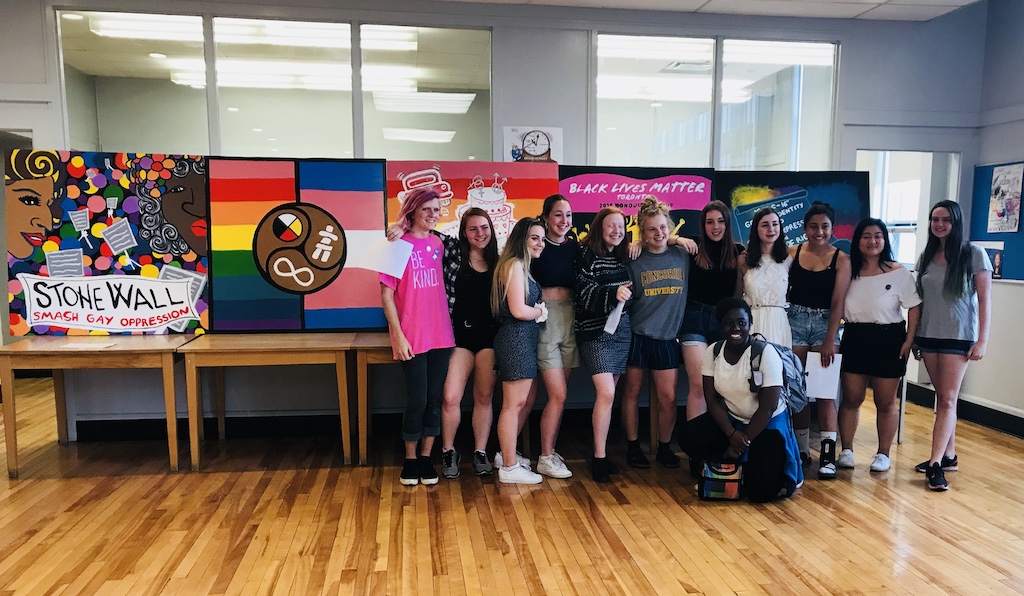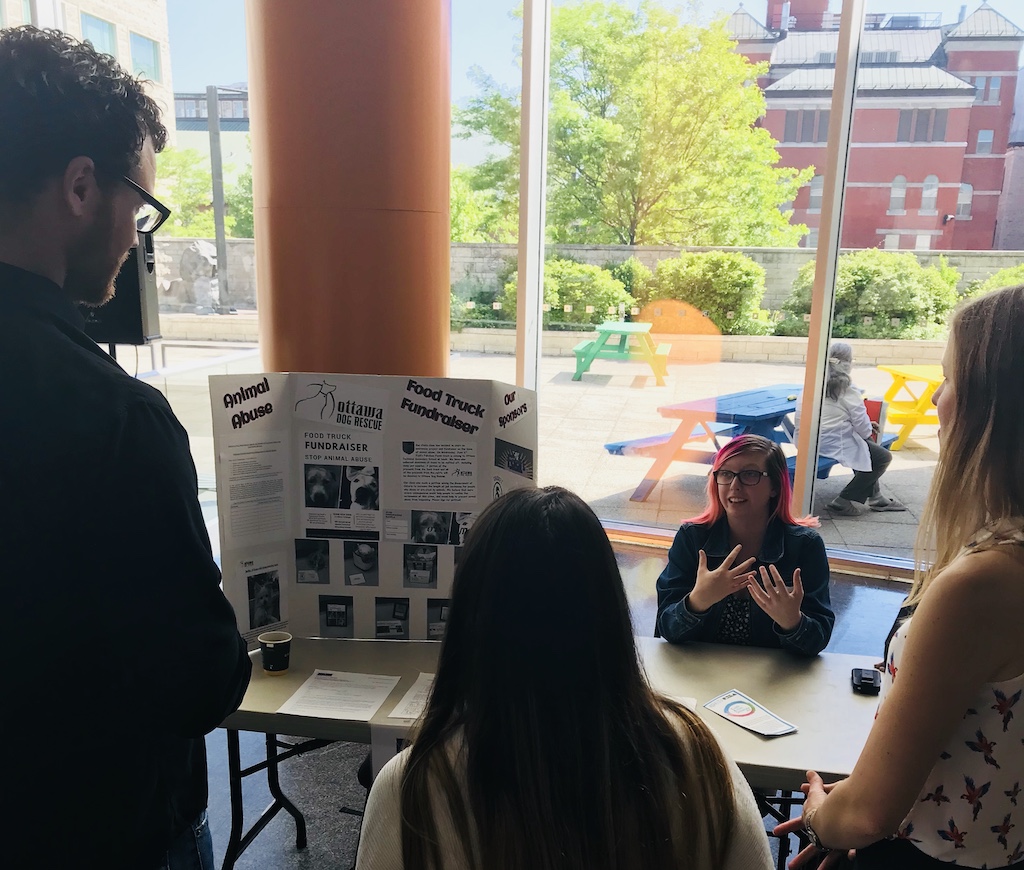Why Community Engagement Matters for Student Success
Community engagement is the foundation of all that we do at Youth Ottawa. Students who are engaged in their communities are confident in using their voices for change, are active in team cooperation, and have improved communication skills. There are several reasons why small-scale community engagement matters for student success, especially in an era when social media is facilitating global engagement.
In our years running the Active Citizenship Initiative (ACI) program, we have learned about:
- LGBTQ+ history
- Ottawa’s housing emergency
- The importance of recreational opportunities
- The Black Lives Matter movement
- Tackling climate change through community gardens
- And much, much more!
Community engagement builds trust & community
Bilateral communication between youth and their communities foster a sense of trust and belonging in their home communities. In an era where much of our interactions are done online, feeling connected to the real world is getting harder and harder, especially for youth. In order to build our communities, we must spend time in them and trust them to hear our voices. By building these communities up with trust and personal connections, we will eventually find ourselves in safer, happier, and healthier environments.
According to a study conducted by the Pew Research Institute, 35 per cent of teenagers are “almost constantly” spending their time on social media. A third of them said they spent too much time on social media, while only eight per cent of them said they spent too little time on social media.
Though phone use may be addictive, it is no question that youth want to be more engaged in their communities, whether online or in person, though many are facing fatigue in the online realm after two years of a pandemic.
Community engagement increases visibility of youth issues
Who better to understand youth issues than youth themselves? As much as adults like to think they understand youth because they used to be youth themselves, times change and world issues change. Youth are the only ones who know what they truly value and what they are concerned about. By listening to their voices, we will be better equipped to help them solve these issues and support them in taking leadership in their communities to build a better future.
Heather Bilder worked with us last year at St. Francis Xavier to implement the Active Citizenship Initiative in her class. One group of her students created a children’s book dealing with domestic abuse.
“I think it’s just really awesome to see how empowered they are when they’re engaged in their learning,” Heather Bilder said about her students.
In 2020, the General Social Survey (GSS) on Social Identity found that youth were among the least civically engaged in Canadian communities, with only 60 per cent of youth aged 15-30 reportedly interested in politics. Meanwhile, 68 per cent of people aged 31 to 46 and 74 per cent of those aged 47 and older reported interest in politics. However, youth were found to be more engaged in recreational activities or hobbies than those in the older categories, suggesting that youth are interested in the things that affect them most, but may not have the education or encouragement to follow up with civic engagement.
Community engagement promotes fairness, equity and diversity
An engaged community results in a diverse range of voices, ensuring fairness and equity for all sub-groups. In creating an ideal society, youth know what solutions they would like to see. An environment that excludes certain groups of people is not an environment that is safe or positive, and is not an environment that people want to live in.
Not only is equity about human rights, a fair and diverse environment is one that is also healthy for our identities. Learning from a range of cultures and peoples ensures that we become well-rounded, attentive citizens who can make the world a better place for everyone, from our homes to our workplaces.
Throughout our years running ACI, we’ve come up with several projects addressing this same issue. In 2018, we supported the Mural Project by students from the Glebe Collegiate Institute which featured community artists painting a mural to draw attention to LGBTQ+ history for equity and inclusion.
In another class, students wrote letters to school boards about a range of topics including the need for more LGBTQ+ topics in their curriculum.

“LGBTQ+ students have been overlooked by the education system continuously for several decades, leading to hazardous learning environments for any student under the lesbian/gay/bi/trans/queer umbrella. There have been a multitude of faults perpetuating this issue, but it’s time for the Ontario government to take action and provide safe and healthy learning conditions for students of all gender identities and sexual orientations alike.” – A Concerned Student
Our Rainbow Bridges program also used to partner with students to create welcoming spaces in schools, and in 2021, we hosted a film festival to highlight a variety of topics the LGBTQ+ community faces.
Education's role in student engagement & how you can help!
At Youth Ottawa, we help teachers engage students in focused reflection and hands-on experiences that increase knowledge, develop skills, and expand students’ capacity to contribute to their communities.
Our Active Citizenship Initiative Program (ACI), for example, aims to engage students and transform the world around them. We introduce students to several issues through our educational programming, encouraging them to take action and guiding them along the way. In the past, students have worked on affordable housing, sustainable gardening, and much more.
On November 29th, we will be participating in Giving Tuesday. We have an ambitious goal to support more student projects like the ones highlighted above. From now until December 31st you can do your part in amplifying youth voices, by donating here to our Active Citizenship Intiative.
